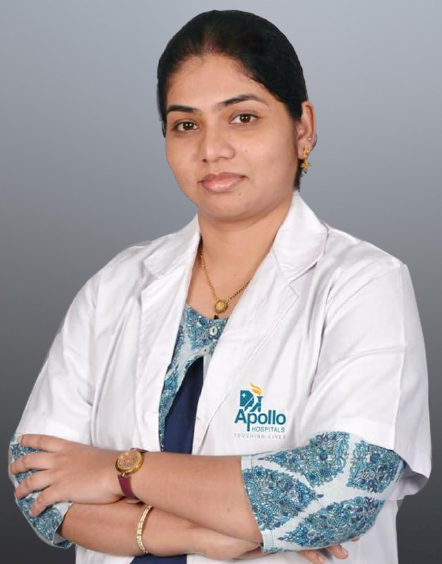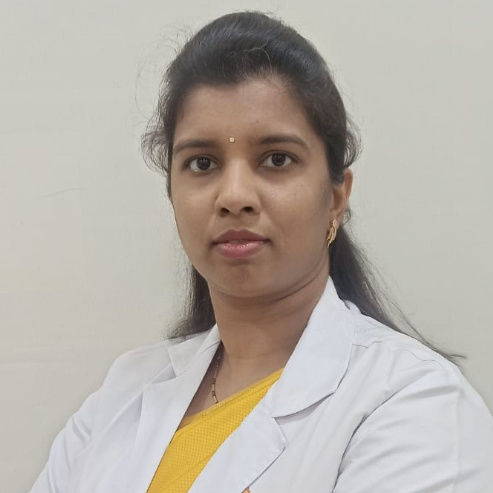Could not find what you are looking for?
- Diseases and Conditions
- Vaginal Yeast Infection - Symptoms, Causes, Diagnosis and Treatment
Vaginal Yeast Infection - Symptoms, Causes, Diagnosis and Treatment

Vaginal Yeast Infection: A Comprehensive Guide for Indian Women
Vaginal yeast infections are a common concern for women worldwide, including millions of Indian women each year. Despite being highly treatable, the discomfort, embarrassment, and misconceptions associated with this condition can leave many women worried or even hesitant to seek help. Understanding vaginal yeast infections, their causes, how to recognize them, and when to get professional advice is crucial for women’s comfort, well-being, and overall health.
This in-depth article covers everything Indian women need to know from everyday prevention to navigating treatment options using language and examples relevant to daily life in India.
What is a Vaginal Yeast Infection?
A vaginal yeast infection, medically known as vulvovaginal candidiasis, occurs when there is an overgrowth of a fungus called Candida, usually Candida albicans, in the vaginal area. While Candida naturally lives in the vagina in small amounts, various factors can upset this balance, allowing the fungus to multiply and cause uncomfortable symptoms.
Key points:
- Vaginal yeast infections are not sexually transmitted diseases, though sexual activity can sometimes trigger symptoms.
- Most women will experience at least one episode in their lifetime, with some experiencing recurrent infections.
How Common Are Vaginal Yeast Infections?
Yeast infections are extremely prevalent—statistics show that nearly 75% of women will have at least one vaginal yeast infection in their lifetime, and about 40–50% may experience two or more episodes. Recent studies and gynecologists in India report that urban lifestyle changes, use of antibiotics, and warmer climates have increased the occurrence of yeast infections among Indian women of all ages.
Vaginal Yeast Infection Causes and Risk Factors
The most common vaginal yeast infection causes are linked to an imbalance of bacteria and yeast in the vagina, allowing Candida fungus to overgrow. Some of the key causes and risk factors include:
1. Antibiotics
Frequent use of antibiotics (for ailments like fever, cough, or skin infections) can reduce the “good bacteria” (lactobacilli) that keep yeast in check.
2. Poor Genital Hygiene
- Washing the vaginal area with strong soaps or harsh chemical cleansers can disturb the protective bacterial balance.
- Wearing damp or sweaty clothes—common during hot and humid Indian summers or after long commutes—creates a warm environment helping yeast to grow.
3. Diabetes
Uncontrolled blood sugar, especially common in urban Indian populations, provides food for yeast to thrive.
4. Hormonal Changes
- Pregnancy, menstruation, or use of hormonal contraceptives (like birth control pills) can increase susceptibility due to hormonal shifts.
- Post-menopausal women may be more prone because of decreased estrogen levels and thinner vaginal tissues.
5. High Sugar Diet
Indian diets sometimes include high amounts of sweets or sugary beverages, and excessive sugar intake can promote yeast growth.
6. Tight Clothing and Synthetic Underwear
Wearing tight-fitted jeans, leggings, or synthetic (non-cotton) underwear traps moisture.
7. Immune Deficiency
Weakened immune systems (due to stress, illness, certain medications, or untreated HIV) can increase risk.
Vaginal Yeast Infection Symptoms: Signs to Watch For
Vaginal yeast infection symptoms can range from mild discomfort to severe irritation, depending on the severity of the infection.. Common signs include:
- Intense itching or burning in or around the vagina and vulva
- Thick, white, “cottage cheese-like” discharge, usually odorless
- Redness, swelling, or soreness of the vaginal and vulvar tissues
- Rash or small red spots on the vulva
- Burning sensation during urination, especially when urine touches inflamed skin
- Pain or discomfort during sexual intercourse
- Watery Vaginal discharge (less common, but can occur in some cases)
Important Notes
- Vaginal discharge in yeast infections is typically odorless. A strong “fishy” smell usually points to other infections, such as bacterial vaginosis.
- Symptoms may be more severe if you:
How is a Vaginal Yeast Infection Diagnosed?
Although symptoms can be a clue, it's important—especially with a first infection or severe symptoms—to consult a gynecologist for a proper diagnosis.
Diagnostic Steps:
- Medical History: The doctor will ask about symptoms, recent medicines, diabetes status, hygiene habits, and sexual activity.
- Physical Examination: Visual exam of the vulva and vagina.
- Laboratory Tests: A sample of vaginal discharge may be examined under a microscope to identify yeast cells and rule out other causes.
Self-diagnosis risks confusion with other vaginal conditions, such as urinary tract infections (UTIs) or sexually transmitted infections (STIs), which require different treatment.
How to Treat Vaginal Yeast Infection?
Almost all uncomplicated vaginal yeast infections can be effectively treated with vaginal yeast infection medication, either over-the-counter or prescription-based. However, Indian women should avoid self-medicating without consulting a healthcare provider, especially if symptoms are severe, recurrent, or for the first time.
1. Vaginal Yeast Infection Antifungal Medicines
- Topical antifungals: Creams, ointments, tablets (pessaries) applied into the vagina; examples include clotrimazole and miconazole.
- Oral antifungals: Fluconazole tablets, usually a single dose but sometimes extended for more severe/recurrent cases.
2. Completing the Full Course
Even if symptoms subside quickly, always finish the entire suggested course to prevent recurrence. Avoid using leftover medicines without advice.
3. Special Cases
- Pregnant women: Prefer topical treatments over oral antifungals.
- Recurrent infections: May require extended or intermittent therapy.
Caution: Avoid over-the-counter steroid creams or inserting home remedies such as garlic, curd, or oils into the vagina; these are not proven safe or effective.
How to Prevent Vaginal Yeast Infections?
Although vaginal yeast infections are common, there are many steps you can take to reduce your risk and prevent recurrences.
General Prevention Tips
- Maintain proper hygiene: Wash only the external genital area with mild, fragrance-free soap. Avoid harsh cleansers or antiseptics.
- Daily showers: Especially important during hot and humid Indian summers.
- Wear breathable fabrics: Choose loose, cotton underwear and avoid tight synthetic clothing that traps heat and moisture.
- Change sanitary products regularly: Replace pads, tampons, and panty liners frequently during menstruation to keep the area clean and dry.
- Wipe correctly: Always wipe front to back after using the toilet or bathing to prevent bacteria from the anal area spreading to the vagina.
- Avoid douching and scented products: Douching, vaginal sprays, and perfumed products disrupt the natural balance of bacteria and yeast.
- Control blood sugar: If diabetic, keep blood sugar levels under control to reduce risk.
- Limit sugar intake: High-sugar diets encourage yeast growth.
- Antibiotics: Use only when prescribed by a doctor. Unnecessary or prolonged antibiotic use can kill protective bacteria.
- Laundry and hygiene during infection: Wash clothes, undergarments, and towels in hot water; avoid sharing them.
Additional Lifestyle Measures
- Avoid hot tubs and prolonged very hot baths, as excess warmth and dampness promote yeast overgrowth.
- Dietary support: Adding yogurt or probiotics may help maintain healthy vaginal bacteria, though results vary.
- Oral care in oral thrush: Replace toothbrushes and sterilise oral appliances (if infected).
Recurrent Yeast Infections: What You Should Know
If you have four or more episodes in a year, you may have recurrent vaginal yeast infection, requiring special attention.
Management:
- Extended antifungal therapy.
- Screening and treatment of sexual partners (rarely).
- Investigation for other health conditions.
Why Do Yeast Infections Keep Coming Back?
For some women, vaginal yeast infections are not just a one-time problem but keep coming back frequently. A yeast infection is considered recurrent if you experience it four or more times in a year. Common reasons include:
- Incomplete treatment: Stopping medication too early or using leftover medicines may allow the infection to return.
- Partner reinfection: In rare cases, yeast can be passed back and forth during sexual activity.
- Hot and humid climate: Sweating, staying in damp clothes, or living in humid conditions encourages yeast growth — a common concern in India.
- Drug resistance: Some types of Candida become resistant to standard antifungal medicines, making treatment more difficult.
- Underlying conditions: Uncontrolled diabetes, weak immunity, or hormonal changes can make women more prone to repeated infections.
- Misdiagnosis: Other conditions like bacterial vaginosis, certain STIs, or skin allergies can mimic yeast infection symptoms.
If you continue to get yeast infections despite treatment, consult a doctor. They may suggest extended antifungal therapy, further investigations, or tailored treatment plans to address the root cause.
Myths vs. Facts
- Myth: Only sexually active women get yeast infections.
Fact: Yeast infections can affect women regardless of sexual activity. - Myth: Hygiene products and douching prevent infection.
Fact: They may actually increase infection risk. - Myth: White discharge always means yeast infection.
Fact: Other conditions can cause similar discharge. - Myth: Eating curd cures infection.
Fact: Curd may help prevent but cannot cure an ongoing infection.
When to See a Doctor?
- Most vaginal yeast infections are mild and treatable. However, you should consult a doctor promptly in the following situations:
- First-time symptoms: If this is your first experience of itching, discharge, or redness, to confirm it is a yeast infection and not another condition.
- Symptoms persisting after treatment: If symptoms do not improve or return after completing antifungal therapy.
- Severe symptoms: Intense pain, swelling, open sores, or widespread rash in the vaginal area.
- Frequent recurrences: If you experience four or more episodes in a year.
- Underlying conditions: If you are pregnant, diabetic, or have a weakened immune system, as treatment may differ.
Talking to Your Healthcare Provider: Questions to Ask
- What is causing my symptoms?
- What treatment is best for me?
- How can I prevent recurrence?
- Should my partner also be tested?
- Do I need lifestyle or diet changes?
Frequently Asked Questions (FAQs)
Q1. Can a yeast infection go away on its own?
Mild vaginal yeast infections sometimes clear up on their own, but most require antifungal treatment to fully resolve. Without proper treatment, symptoms can worsen or keep coming back. It is always safer to consult a doctor for diagnosis and the right management.
Q2. Is a yeast infection dangerous during pregnancy?
Any vaginal infection during pregnancy should be checked by a doctor. Yeast infections are not usually harmful to the baby, but untreated infections can cause discomfort and complications. Pregnant women are usually treated with topical antifungal medicines rather than oral tablets.
Q3. Can my sexual partner get a yeast infection?
In rare cases, sexual partners may develop symptoms such as itching or redness. Routine treatment of partners is not required unless they show symptoms. However, if infections keep recurring, both partners may need medical evaluation.
Q4. Do children and adolescents get yeast infections?
Yes. Yeast infections can occur in young girls, particularly if they have taken antibiotics, have diabetes, or poor hygiene practices. In such cases, a doctor’s evaluation is important to confirm the diagnosis and guide safe treatment.
Q5. Can poor nutrition lead to yeast infections?
A high-sugar diet may increase the risk of yeast overgrowth, as sugar feeds the fungus. Maintaining balanced nutrition, including probiotics and healthy foods, can help support immunity and reduce the chances of recurrent infections.
Q6. What are the most common vaginal yeast infection symptoms?
The most common symptoms include itching or burning in the vagina, thick white discharge resembling cottage cheese, redness, swelling, burning while urinating, and pain during sexual intercourse. These symptoms are usually odorless, which helps differentiate yeast infections from bacterial infections.
Q7. What are the main vaginal yeast infection causes?
The main causes include overgrowth of the Candida fungus, antibiotic use, pregnancy or hormonal contraceptives, uncontrolled diabetes, weakened immunity, poor genital hygiene, and wearing tight or damp clothing that traps moisture.
Q8. Which vaginal yeast infection antifungal works best?
The most common antifungal options include topical creams or vaginal pessaries containing clotrimazole, miconazole, or terconazole, and oral tablets such as fluconazole. The best choice depends on the severity of infection, pregnancy status, and overall health. Always consult a doctor before using any antifungal therapy.
Q9. How to get rid of a vaginal yeast infection?
The quickest and safest way is with antifungal medicine prescribed by a doctor, either as topical creams/pessaries or oral tablets. Avoid home remedies, as they are not proven effective. Good hygiene and completing the full course of medicine prevent recurrence.
Q10. How to cure a vaginal yeast infection naturally?
There is no proven home or natural cure for vaginal yeast infections. Some lifestyle changes, such as wearing cotton underwear, avoiding sugar-rich diets, and keeping the area clean and dry, may help prevention. For actual cure, antifungal medicines are required.
Q11. What does a vaginal yeast infection look like?
It often causes redness, swelling, and small rashes around the vulva. Vaginal discharge may look thick, white, and clumpy (like cottage cheese). However, symptoms can overlap with other conditions, so a doctor’s evaluation is necessary.
Q12. What to do for a vaginal yeast infection?
Consult a doctor for proper diagnosis and treatment. Start antifungal therapy as prescribed, keep the genital area clean and dry, wear loose cotton underwear, and avoid irritants such as perfumed soaps. Do not self-medicate or rely on home remedies.
Q13. Can a vaginal yeast infection go away on its own?
Mild cases may improve, but most need antifungal treatment for complete cure. Without treatment, symptoms can persist or return frequently. It’s best to seek medical advice if you have a first-time infection or recurrent episodes.
Q14. Is vaginal yeast infection contagious?
It is not considered a sexually transmitted infection, but in rare cases it can pass between sexual partners. Good hygiene, treatment, and avoiding intercourse until symptoms resolve can help reduce this risk.
Q15. How to test for a vaginal yeast infection?
A doctor can confirm diagnosis by examining vaginal discharge under a microscope or performing a lab culture to check for Candida fungus. Self-diagnosis is not always accurate, as other infections like bacterial vaginosis or STIs can mimic the symptoms.
Q16. Can the intake of probiotics help to reduce vaginal yeast infection?
Yes. Some studies suggest that probiotics, especially those containing lactobacillus, may help restore the natural balance of bacteria in the vagina and slow yeast overgrowth. While probiotics may reduce recurrence risk, they should not replace medical antifungal treatment.
Q17. What are the symptoms of a serious yeast infection?
A yeast infection may be considered serious if you develop tears, sores, or cracks in the skin, if symptoms are extremely painful, or if you experience four or more episodes in a year. In such cases, extended treatment and further medical evaluation are needed.
Q18. Do vaginal yeast infections come under the category of sexually transmitted diseases?
No. Vaginal yeast infections are not a sexually transmitted disease. They can occur in women regardless of sexual activity, including those who are not sexually active.
Summary and Key Takeaways
- Vaginal yeast infections are common, treatable, and preventable.
- Prompt diagnosis and correct treatment provide relief.
- Hygiene and lifestyle choices are key for prevention.
- Consult a gynecologist if symptoms persist or recur.
Conclusion
Vaginal yeast infections are a fact of life for many Indian women, but they should never be a source of shame or silence. With accurate information, preventive measures, and timely medical care, you can confidently manage this common condition. Share awareness with friends, sisters, and daughters—because knowledge and self-care are the foundation of women’s health.













